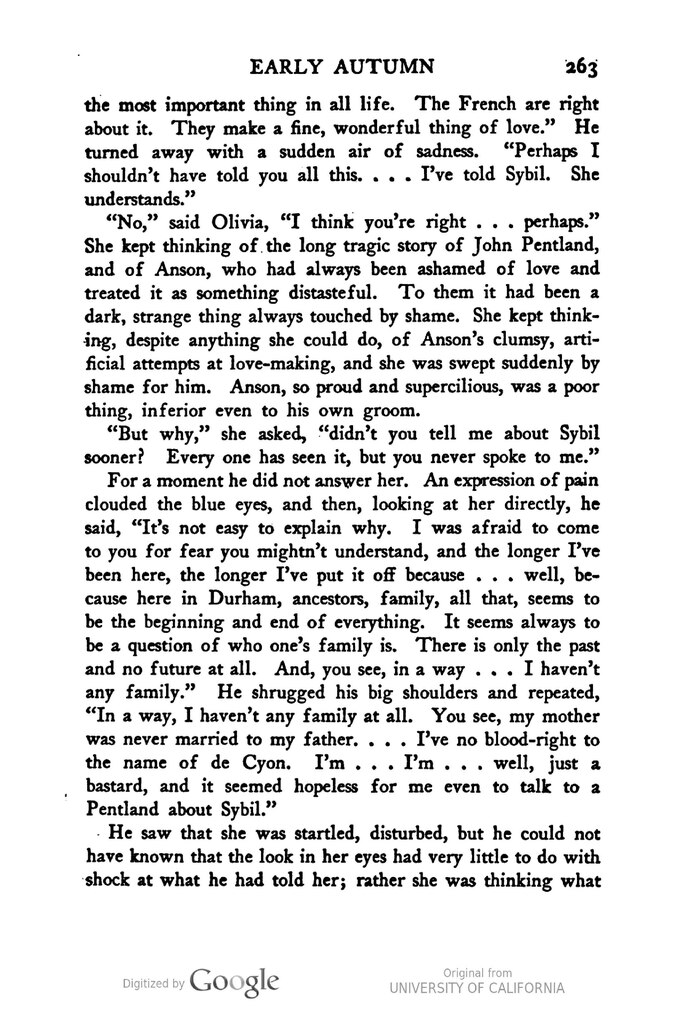the most important thing in all life. The French are right about it. They make a fine, wonderful thing of love." He turned away with a sudden air of sadness. "Perhaps I shouldn't have told you all this. . . . I've told Sybil. She understands."
"No," said Olivia, "I think you're right . . . perhaps." She kept thinking of the long tragic story of John Pentland, and of Anson, who had always been ashamed of love and treated it as something distasteful. To them it had been a dark, strange thing always touched by shame. She kept thinking, despite anything she could do, of Anson's clumsy, artificial attempts at love-making, and she was swept suddenly by shame for him. Anson, so proud and supercilious, was a poor thing, inferior even to his own groom.
"But why," she asked, "didn't you tell me about Sybil sooner? Every one has seen it, but you never spoke to me."
For a moment he did not answer her. An expression of pain clouded the blue eyes, and then, looking at her directly, he said, "It's not easy to explain why. I was afraid to come to you for fear you mightn't understand, and the longer I've been here, the longer I've put it off because . . . well, because here in Durham, ancestors, family, all that, seems to be the beginning and end of everything. It seems always to be a question of who one's family is. There is only the past and no future at all. And, you see, in a way . . . I haven't any family." He shrugged his big shoulders and repeated, "In a way, I haven't any family at all. You see, my mother was never married to my father. . . . I've no blood-right to the name of de Cyon. I'm . . . I'm . . . well, just a bastard, and it seemed hopeless for me even to talk to a Pentland about Sybil."
He saw that she was startled, disturbed, but he could not have known that the look in her eyes had very little to do with shock at what he had told her; rather she was thinking what
